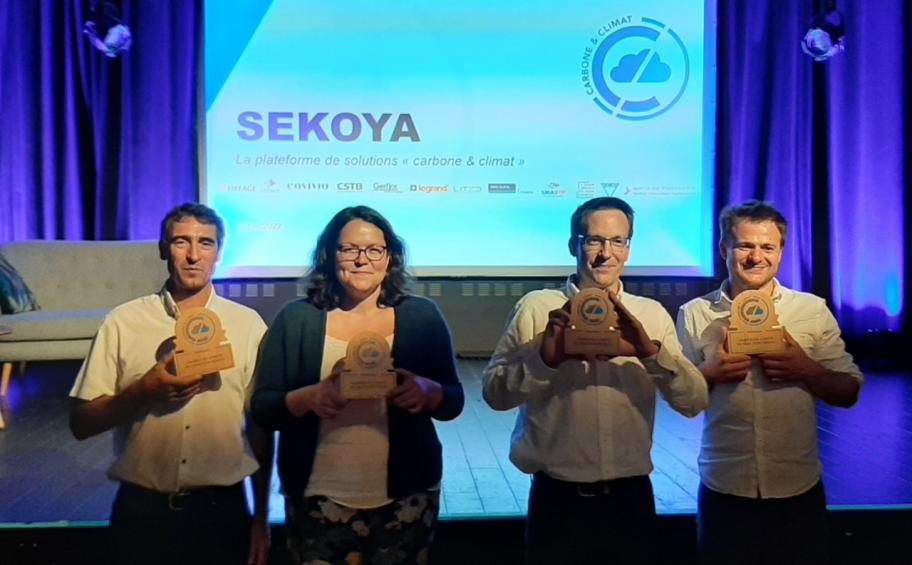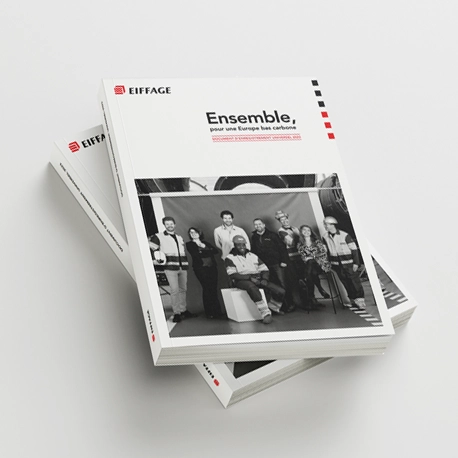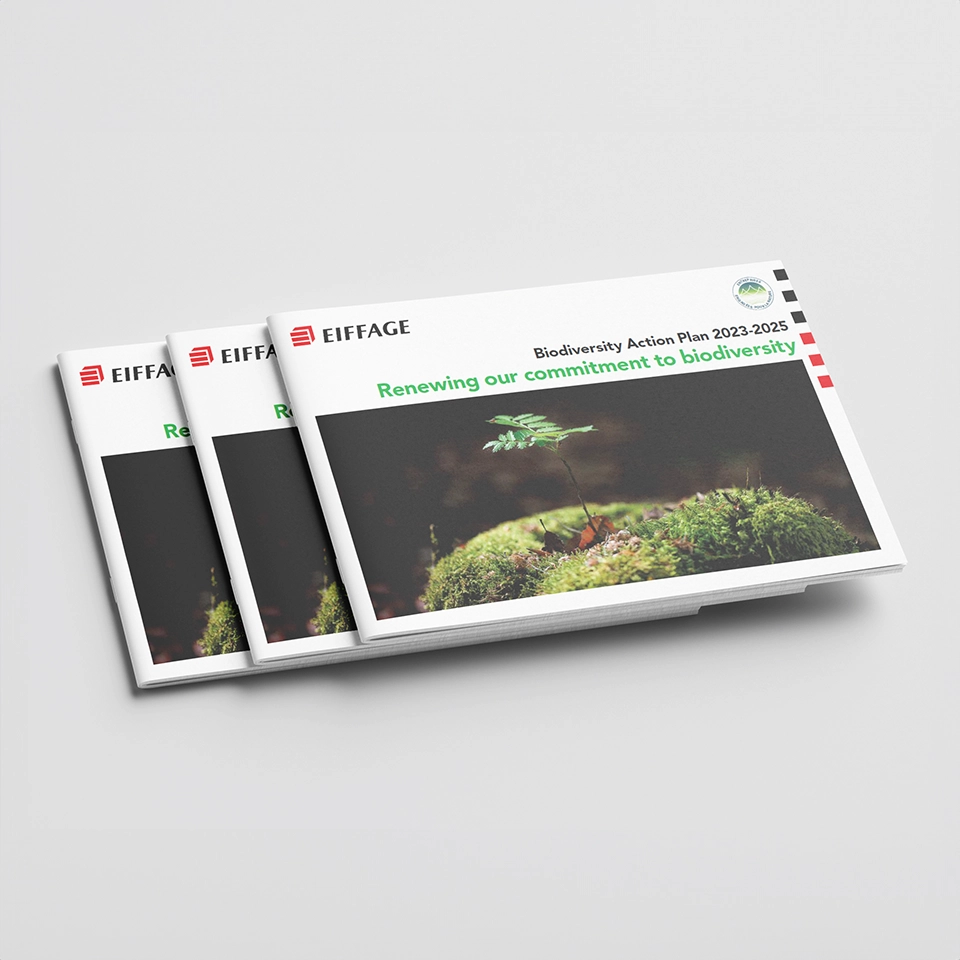23.06.2022
The Sekoya industrial club welcomes a new partner and announces the winners of its fourth call for innovative and low-carbon solutions
On Wednesday, 22 June, the Eiffage group and Impulse Partners met with their partners CEEBIOS, Covivio, the CSTB, Gerflor, Legrand, Lited, Rexel, l’Union Sociale pour l’Habitat and Vicat to welcome a new member to the industrial club and to select the winners of their fourth call for solutions on the Sekoya platform.

SMA BTP, the leading insurer for construction and property professionals, has joined the Sekoya initiative, which offers the opportunity to engage the insurance community in a proactive approach to the challenges of climate change. On this occasion, SMA BTP emphasised its primary role of prevention and its responsibility to promote the mutualisation of risks.
Created in 2019, the Sekoya platform’s aim is to identify low-carbon solutions and to support their inventors in developing these for macro-scale implementation, enabling them to integrate with future calls for tenders. These innovations contribute to shared sustainable development because they are available to all stakeholders in the sector.
Across the three previous editions, startups, SMEs and MSBs have submitted almost 200 innovative solutions to Sekoya. Of these, 14 companies were named as winners and some twenty collaborations initiated with the club’s partners, from the feasibility study through to associating solutions with responses to calls for tenders or with projects.
For example, the startup Circouleur, winner of the first competition, which manufactures and sells professional acrylic paints made with over 70% recycled materials, was involved in the Hypérion tower project in Bordeaux, and more recently, provided all the paint for a 127-home construction scheme in La Rochelle. Similarly, SAS Minimum, winner of the second call for solutions, is currently developing a new range of recycled switches with Legrand.
For this fourth edition, SEKOYA decided to boost the number of applications by suggesting the following themes:
- Soil, biodiversity and landscapes
- Water table protection
- Vertical construction of buildings and structures
- Adapting to extreme weather events
- Fragility of foundations and engineering structures
- Methods and tools to improve knowledge of a space
Within a few months, 64 solutions were submitted on the Sekoya platform: 45 from startups and 19 from SMEs. Seven were preselected to compete in the final and were introduced to the industrial club’s panel on Wednesday, 22 June.
The winners are:
F-Reg has developed a method to store rainwater in the drainage system to reduce flooding and runoff onto roads.
UpFactor Géoservices is an application that recreates the layout of existing buildings in 3D. This information is combined with regulatory data from urban planning programmes and architectural templates to determine the potential for vertical construction in a single click.
The jury’s favorites are:
The aim of this project is to harness the circular economy and access to employment programmes to produce soil and roofing substrates from local waste (excavated earth, deconstruction materials, compost) rather than depleting topsoil in agricultural areas.
Terra Innova recovers excavated earth from construction sites for agricultural and environmental purposes. The recovered earth can be used to replenish fertile soil for local farmers, redevelop land and create resilient landscapes.
The other preselected startups in attendance were:
Aquality provides recovery of non-conventional water at building level. This startup develops rainwater recovery and grey water recycling systems for use in toilets, floor cleaning and irrigation.
Biomede promotes phytoremediation, the decontamination of soil using plants, by offering a service to support the application of this method to soil moderately contaminated with heavy metals in an urban environment.
Tergys combines a biowaste micro-methanisation solution with decentralised wastewater treatment for local non-potable uses. This energy self-sufficient containerised system facilitates biogas production.
-
 23.07.2024La course Eiffage du viaduc de Millau en Aveyron soutient...La Course Eiffage du Viaduc de Millau en Aveyron soutient activement l'Œuvre des Pupilles des sapeurs-pompiers. Depuis la première édition, les sapeurs-pompiers...
23.07.2024La course Eiffage du viaduc de Millau en Aveyron soutient...La Course Eiffage du Viaduc de Millau en Aveyron soutient activement l'Œuvre des Pupilles des sapeurs-pompiers. Depuis la première édition, les sapeurs-pompiers... -
 22.07.2024
22.07.2024 -
 19.07.2024Eiffage's motorways concessions in France make a commitment...As provided for in the 2025 strategic plan, the new charter of customer commitments was recently rolled out across the networks of Eiffage's motorways concessions...
19.07.2024Eiffage's motorways concessions in France make a commitment...As provided for in the 2025 strategic plan, the new charter of customer commitments was recently rolled out across the networks of Eiffage's motorways concessions...

